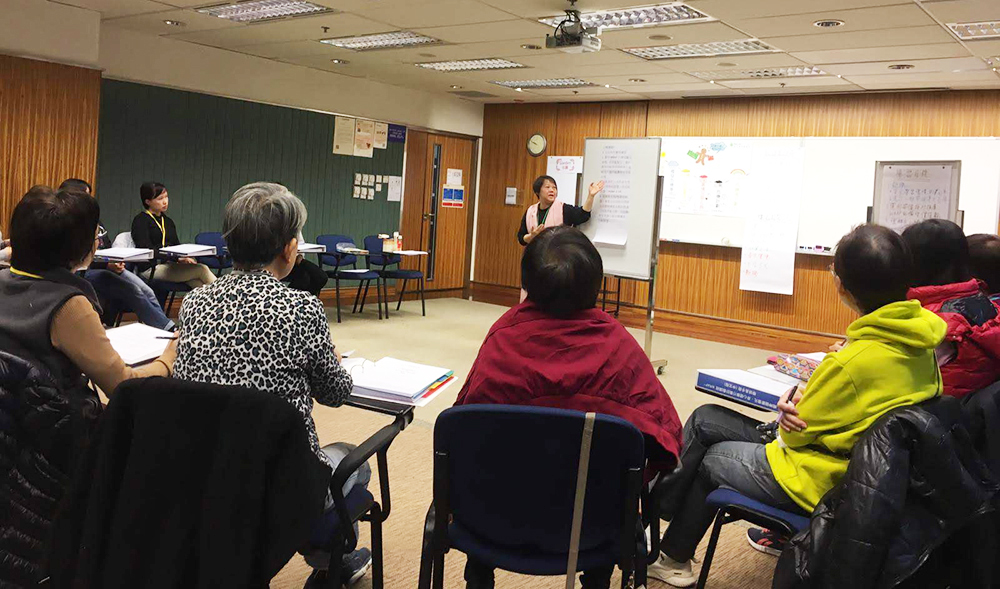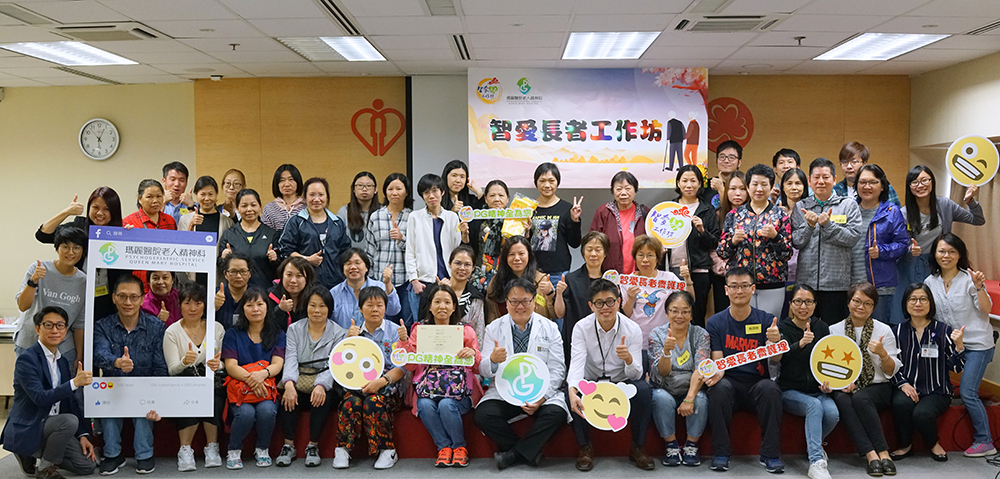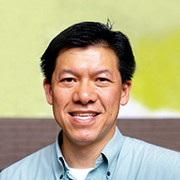May 2020 | Volume 21 No. 2
Cover Story
Mood Enhancers
About 10 per cent of Hong Kong people aged over 65 show signs of depression, the result of stress, poor health and lack of social engagement. Similar factors can also darken the mood of the family members who look after elderly relatives suffering from dementia. The problem has motivated Professor Terry Lum Yat-sang, Henry G Leong Professor in Social Work and Social Administration, of the Department of Social Work and Social Administration and Dr Chan Wai-chi of the Department of Psychiatry to find ways to improve the mental health of both groups.
“Depression is a common mental health challenge for older people, but the current system is not effective in helping them,” said Professor Lum. Moreover, because Hong Kong is an ageing society with fewer working adults available to look after each elderly person, the burden of care falls on families, especially for the elderly with dementia. Dr Chan said a study in the United States found nearly one-third of caregivers met the diagnostic criteria of depression, and caregivers also suffered from more physical problems, such as hypertension.
Given that Hong Kong’s over-65 population already numbers more than 1.27 million and is rapidly growing, time is of the essence to get solutions in place that will help the elderly and their caregivers enjoy better mental health.
Joy in old age
Professor Lum is spearheading the Jockey Club JoyAge project, launched in 2016 to promote collaboration between medical and social services on elderly depression and train social workers and other frontline staff to identify and help at-risk individuals. The project also provides 100 hours of training for ‘peer supporters’ – seniors who visit the elderly who live alone or are at risk, and encourage them to come out into the community, and who provide peer support to older people with depression under the supervision of a professional social worker.
The first stage of the project involved about 4,000 elderly in four districts and was supported by six non-governmental organisations and about HK$82 million from the Jockey Club. The results so far have been highly encouraging.
“There are two major outcome indicators that we are focussed on. One is preventing older people from falling into depression. The other one is treating people who already have symptoms that we can try to reverse,” he said.
Over three years, those who received the JoyAge intervention were two times less likely to become depressed or six times more likely to show significant improvement than the control group that did not participate in the project.
That success has convinced the Jockey Club to inject another HK$279 million into JoyAge so it can be implemented in all 18 districts in Hong Kong starting this year. “We are helping to reduce the stigma of getting help for mental health issues and we hope to reach many more people,” Professor Lum said.

Participants in the Wellness Recovery Action Plan facilitator training.
Helping the helpers
Stigma is also a concern for caregivers because dementia is often seen as a mental illness in the Hong Kong community. “Caregivers don’t want other people to know they have relatives with dementia because they worry it will be degrading to their family name and their status in society,” Dr Chan said, so they tend to ’hide’ their caregiving role.
Focus groups assessing the concerns of caregivers have highlighted their unhappiness. “It’s not surprising that most caregivers see caregiving as a negative, associated with guilt, embarrassment and shame,” he said, especially given the 24-hour nature of caregiving and the challenge of dealing with people who are aggressive, irritable and difficult. “Some did share positive aspects with us, such as the opportunity to return the favour to their parents who looked after them when they were young by now providing them with companionship. Some find caregiving adds meaning to their lives. But most tell of negative emotions.”
To help them cope, Dr Chan developed workshops for caregivers at the David Trench Rehabilitation Centre that is part of Queen Mary Hospital, led by himself and nursing and occupational therapy colleagues. They educate the caregivers about what to expect with dementia and how to deal with the behaviours, such as identifying patterns. For instance, expressions of anger may arise when the patient is hungry but cannot express themselves properly. “We formulate steps that caregivers can take when facing these problems,” he said.
He also organises an annual workshop for formal paid caregivers to reinforce their skills in handling such problems as shouting and inappropriate sexual behaviours by patients. Dr Chan also piloted a programme to provide exercise intervention for family caregivers that involved 12 weeks of guided tai chi. The mood of the group was elevated compared to the control group that did not receive the intervention, but after 24 weeks both groups were back to the same levels.
“When we were not there to guide them, they didn’t keep it up. Exercise improves endorphins, especially when people do it together,” he said, underscoring the need to help both caregivers and the elderly feel less isolated. This may go a long way to improving their mood.

A workshop for old age home staff to learn about the symptoms of dementia and ways to handle them.
We are helping to reduce the stigma of getting help for mental health issues and we hope to reach many more people.

PROFESSOR TERRY LUM YAT-SANG

